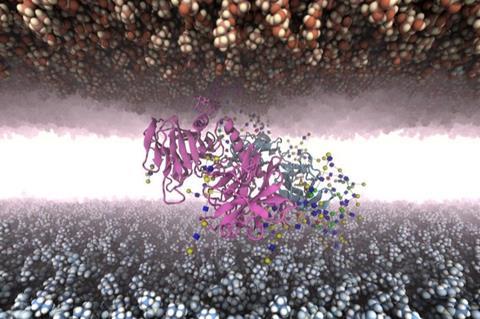Researchers from Auburn University, in a landmark collaboration with Brazil’s Oswaldo Cruz Foundation (FIOCRUZ), the world’s leading research institution on Chagas Disease, have published a significant study in the journal Biochemistry. The study sheds new light on how the Chagas Disease parasite invades human cells—a crucial step towards developing effective treatments for this neglected tropical disease.

Chagas Disease, caused by the parasite Trypanosoma cruzi, is traditionally endemic to Latin America but is increasingly becoming a global health concern. “With international travel and migration pushing the disease beyond its original borders, it’s becoming a silent threat in regions like the US and Europe where it often goes unrecognized due to non-specific early symptoms,” says Dr. Bernardi, lead researcher at Auburn University.
READ MORE: Innovative test diagnoses chagas disease in newborns
The collaborative research utilized a novel molecular dynamics simulation to examine the interaction between the parasite’s protein gp82 and the human receptor LAMP2. This interaction is pivotal for the parasite’s entry into human cells. The study, the first to model this interaction at such an atomic detail, identifies new potential targets for therapeutic intervention which could lead to the development of drugs to block the infection process.
“This research is not just about scientific discovery,” emphasizes Dr. Bernardi. “It’s about addressing a major, yet neglected global health issue. Chagas Disease affects millions and poses a significant burden on public health systems, particularly in Latin America. However, its spread to the US and Europe—where data on its prevalence remains scarce—highlights the urgent need for increased surveillance and research.”
Molecular mechanisms
FIOCRUZ’s partnership in this study underscores the global imperative to combat Chagas Disease. “Collaborating with Auburn University allows us to blend cutting-edge technology with decades of expertise in Chagas research,” says Dr. Leal da Silva, co-author and a professor at both FIOCRUZ and Universidade Federal do Rio de Janeiro. “This study is a critical step toward a more comprehensive understanding of the molecular mechanisms of Chagas Disease, which is essential for the development of effective treatments.”
Raissa Rosa, a graduate student at both FIOCRUZ and Auburn University, adds, “This collaboration has been incredibly enlightening. It allowed us to connect known experimental results with computational work that enabled us to visualize the interaction at the atomistic level. We were able to see things that not only explain the experimental results but also go beyond, revealing new aspects of the parasite-host interaction that we could never see before.”
The study also highlights the potential for international research collaborations to tackle complex health challenges. “Chagas Disease has been neglected for far too long,” Dr. Bernardi adds. “But with the combined efforts of institutions like Auburn and FIOCRUZ, we are making significant strides in understanding and eventually mitigating this disease.”







No comments yet